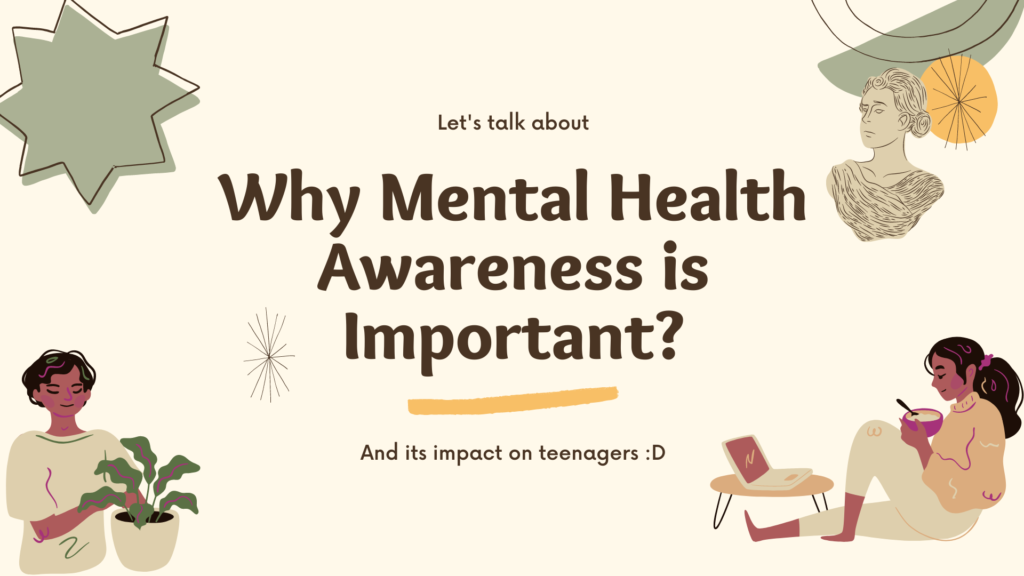
Mental health is as important as physical health, yet it often doesn’t get the attention it deserves. It impacts how we think, feel, and act in our daily lives. Mental health awareness is crucial to understanding, preventing, and addressing mental illnesses. Let’s dive into the reasons behind mental health issues and explore practical solutions to protect ourselves.
*Why Mental Health Matters
Mental health isn’t just about avoiding illness—it’s about thriving. Good mental health allows us to handle stress, build relationships, and make decisions. When our mental health suffers, every aspect of our lives can be affected, including work, school, and personal relationships.

Common Reasons for Mental Health Issues
1. Stress and Pressure
High stress levels from work, school, or personal responsibilities can lead to burnout, anxiety, and depression.
2. Social Isolation
Lack of meaningful connections with others can make us feel lonely and negatively affect our mental well-being.
3. Traumatic Experiences
Trauma, such as losing a loved one or experiencing abuse, can trigger long-term mental health challenges.
4. Poor Lifestyle Choices
Unhealthy habits like poor diet, lack of sleep, and limited physical activity can affect brain chemistry and overall mood.
5. Genetic and Biological Factors
Some mental health conditions, like depression or bipolar disorder, can run in families or be caused by imbalances in brain chemicals.
6. Substance Abuse
Excessive use of drugs or alcohol can worsen mental health, creating a vicious cycle of dependency and emotional distress.
7. Stigma and Lack of Support
Fear of judgment or lack of understanding can prevent people from seeking the help they need.
How to Protect Your Mental Health
1. Talk About Your Feelings
Sharing your thoughts and emotions with trusted friends, family, or a therapist can reduce stress and help you process challenges.
2. Stay Physically Active
Exercise isn’t just good for your body—it’s great for your mind. Activities like walking, yoga, or dancing release endorphins, which improve your mood.
3. Eat a Balanced Diet
A nutritious diet fuels your brain. Include foods rich in omega-3 fatty acids, such as fish, nuts, and seeds, to support brain health.
4. Get Enough Sleep
Lack of sleep can worsen anxiety and depression. Aim for 7-9 hours of sleep each night to let your brain rest and recover.
5. Manage Stress
Try stress-relief techniques like deep breathing, meditation, or mindfulness exercises. Even simple hobbies like gardening or painting can help you relax.
6. Build Strong Relationships
Connect with people who lift you up. Having a support system can help you navigate life’s ups and downs.
7. Seek Professional Help When Needed
If you’re struggling, don’t hesitate to reach out to a mental health professional. Therapists and counselors are trained to provide tools and support to help you heal.
8. Limit Screen Time
Too much time on social media can contribute to feelings of inadequacy or loneliness. Take regular breaks from screens and spend time in the real world.
9. Avoid Harmful Substances
Stay away from drugs and limit alcohol consumption. These can worsen mental health and make it harder to manage emotions.
10. Practice Gratitude
Focus on the positives in your life. Writing down three things you’re grateful for each day can shift your mindset and improve your mental health.
Breaking the Stigma Around Mental Health
Stigma is one of the biggest barriers to mental health care. It prevents people from seeking help and talking openly about their struggles. Here’s how we can break the stigma:
- Educate Others: Share accurate information about mental health to increase understanding.
- Be Supportive: Listen without judgment when someone opens up about their struggles.
- Normalize Therapy: Encourage seeking professional help as a sign of strength, not weakness.
Taking care of your mental health is a lifelong journey, but it’s one of the most rewarding things you can do for yourself. By understanding the reasons behind mental health challenges and practicing healthy habits, you can protect your mind and improve your quality of life. Remember, seeking help is a sign of courage, not weakness.
How If you’re struggling, don’t hesitate to reach out to a mental health professional. Therapists and counselors are trained to provide tools and support to help you heal.
FAQs
1. How do I know if I’m struggling with mental health?
Signs include feeling sad or anxious for long periods, losing interest in activities, or having trouble concentrating. If you notice these, consider reaching out for support.
2. Can diet really affect mental health?
Yes! A balanced diet with plenty of nutrients supports brain health and can improve your mood and energy levels.
3. What should I do if someone I know is struggling?
Be a good listener, offer support without judgment, and encourage them to seek professional help if needed.
4. Is therapy only for people with severe mental health issues?
No, therapy can benefit anyone! It’s a tool for personal growth, stress management, and overall well-being.
5. How can I build better mental health habits?
Start small—practice gratitude, take regular walks, and set aside time to relax. Consistency is key!






